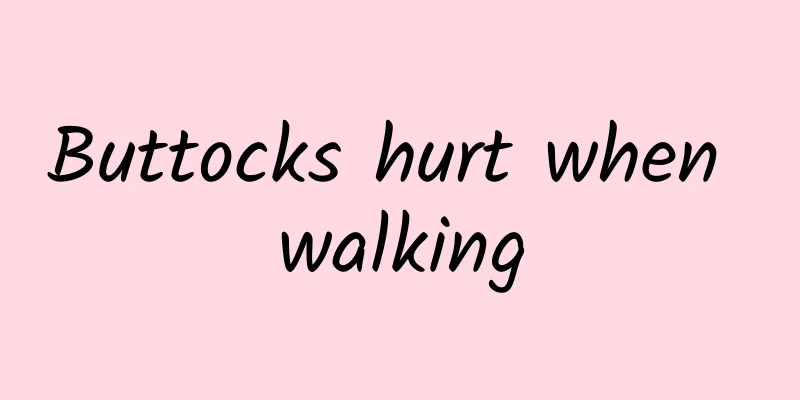Buttocks hurt when walking

|
Pain in the buttocks when walking and pain in the bones inside is a symptom that many people experience. This symptom is mainly caused by the disease sciatica. There are many types of sciatica, such as radicular sciatica, trunk sciatica, etc. Of course, no matter what type of sciatica you have, certain methods are needed to relieve and treat it! 1. Radicular sciatica : : : : : : : : : : : : : : : : : : : : : : : : : : : : : : : : : : : : : : : : : : : : : : : : : : : : : : : : : : : : : : : : : : : : : : : : : : : : : : : : : : : : : : : : : : : : : : : : : : : : : : : : : : : : : : : : : : : : : : : : : : : : : : : : : : : : : : : : : : : : : : : : : : : : : : : : : : : : : : : : : : : : : : : : : : : : : : : : : : : : : : : : : : : : : : : : : : : : : : : : : : : : : : : : : : : : : : : : : : : : : : : : : : : : : : : : : : : : : : : : : : : : : : : : : : : : : : : 2. Dry sciatica The onset of the disease also varies with the cause. For example, those triggered by cold or trauma often have an acute onset. The pain often radiates from the buttocks to the back of the thigh, the posterior and lateral side of the calf and the lateral side of the foot. The pain worsens during walking, movement and traction of the sciatic nerve. The tenderness point is below the buttocks. The Lasegue sign is positive and the Kernig sign is mostly negative. Scoliosis often bends toward the affected side to reduce the traction on the sciatic nerve trunk. Physical examination findings 1. Tender points There are tender points along the sciatic nerve distribution area, such as the lumbar side, iliac point, gluteal point, peroneal point, ankle point, etc. 2. Positive sciatic nerve involvement signs, such as Kernig's sign, Laseque's sign, Bonnet's sign, etc. 3. Within the range of control of the sciatic nerve, there are varying degrees of motor, sensory, reflex and autonomic dysfunction, resulting in weak dorsiflexion of the toes on the affected side, decreased pain sensation in the skin on the outside of the calf, disappearance of the Achilles tendon reflex, decreased gluteal muscle tone, etc. 3. Treatment Methods 1. Treatment should be directed at the cause. During the acute phase of lumbar disc herniation, resting on a hard bed for 1-2 weeks can often stabilize the symptoms. 2. For symptomatic treatment, for pain, paracetamol plus codeine 30 mg, 3-4 times/d, and other non-steroidal analgesics, such as ibuprofen, naproxen, etc., can be used. For muscle spasms, diazepam 5-10 mg orally, 3 times/d; or cyclobenzaprine 10 mg orally, 3 times/d, may be effective. 3. In severe cases, dexamethasone 10-15 mg/d can be used by intravenous drip for 7-10 days. Generally, 10 mg of prednisone can be taken orally 3-4 times a day, and 10-14 times as a course of treatment. 1%-2% procaine or 1 ml of prednisolone can also be used for paravertebral blockade. Acupuncture and physical therapy can be used in combination. Conservative treatment can usually relieve the symptoms. When the effect is not good, pelvic traction or prednisolone epidural injection can be used. Surgical treatment may be considered for individual ineffective or chronic recurring cases. |
<<: Traditional Chinese Medicine Chiropractic and Bone-setting Techniques
>>: Pain in lower left rib cage
Recommend
Itchy skin on the joints of hands and feet
The joints of the hands and feet are actually qui...
What medicine is effective for Meniere's syndrome
Common treatments for patients with Meniere's...
Tension headaches have these symptoms
Tension headaches mostly occur in young and middl...
Is schizophrenia hereditary?
Schizophrenia is a functional mental illness. Thi...
Why is the root of the tongue swollen and painful?
In our lives, we will encounter pain in the throat...
How to remove black tartar from baby's teeth
When black plaque appears on baby's teeth, it...
Chinese medicine foot bath prescription
Traditional Chinese medicine believes that if a p...
What causes mumps?
Mumps is a common disease in our human body. This...
What department should I go to if my child has blood in his stool?
Stool can reflect a person's physical health....
How to make American ginseng stewed with lean meat delicious?
Nowadays, people pay attention to the high nutrit...
What causes right-side hemiplegia and swelling?
Hemiplegia is a common symptom in life. It brings...
Prevention of tuberculosis
Tuberculosis is a serious lung infection and can ...
If the abortion is not clean, you will bleed after catching a cold after the uterus is cleaned.
There are many side effects of medical abortion, ...
What are the types of gene mutations?
Gene mutation is an irreversible behavior and has...
Causes of menopause in girls
Women who have a normal sex life may become pregn...









